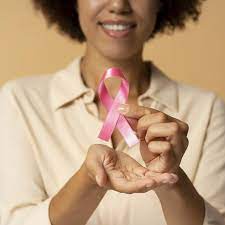Breast Cancer Recovery: What to Expect After Chemotherapy
Receiving chemotherapy as part of breast cancer treatment is a significant step in the journey towards recovery. In Singapore, breast cancer patients benefit from advanced cancer care and supportive services designed to manage chemotherapy side effects and promote holistic healing. Understanding what to expect during and after chemotherapy can empower women and their families to navigate recovery confidently and with realistic expectations.
What Is Chemotherapy and Why Is It Used in Breast Cancer?
Chemotherapy uses powerful drugs to target and destroy cancer cells that may remain after surgery or to shrink tumors before surgery. It is often given in cycles, typically over 3 to 6 months, tailored to the individual’s cancer type and stage. In Singapore, chemotherapy is an integral component of breast cancer treatment plans, helping improve survival rates and reduce the risk of recurrence.
Common Side Effects During and After Chemotherapy
Chemotherapy side effects can vary widely but are generally temporary and manageable with appropriate care. Patients commonly experience fatigue, hair loss, nausea, and lowered immunity during treatment. Other effects include changes in taste, skin and nail sensitivity, and “chemo brain,” which refers to cognitive fog and memory issues. Some side effects like peripheral neuropathy (nerve pain or numbness) can persist longer but often improve with time. Patients in Singapore receive comprehensive support to address these issues, ensuring better comfort and quality of life throughout cancer recovery.
Physical Recovery After Chemotherapy
Recovery after chemotherapy is gradual. Fatigue and weakness may linger for weeks or months, requiring patience and rest. Nutrition plays a critical role—healthcare providers encourage a balanced diet rich in protein and calories to aid healing. Gentle physical activity, as tolerated, can help improve energy levels and mental well-being. Some women also experience changes in breast sensation or hormonal effects if hormone therapy follows chemotherapy.
Emotional and Psychological Support
Beyond physical healing, emotional recovery is essential. Many women face anxiety about cancer recurrence, changes in body image, or the long-term impact of treatment. Emotional support resources in Singapore include counseling, support groups, and survivorship programs that foster connection and resilience. Open communication with family, friends, and healthcare teams helps women cope with the psychological challenges of breast cancer recovery.
Holistic Cancer Care and Follow-Up in Singapore
Post-chemotherapy care involves regular follow-up visits with oncologists and nurses to monitor for cancer recurrence and manage ongoing side effects. Singapore’s multidisciplinary cancer care model integrates medical treatment with rehabilitation, nutrition, and psychosocial support. Services are personalized to each patient’s needs, reflecting advances in cancer recovery science and comprehensive patient-centered care.
Tips for Navigating Breast Cancer Recovery
- Prioritize rest but aim for gentle exercise to rebuild strength
- Maintain a nutritious, balanced diet recommended by dietitians
- Communicate openly with your healthcare team about symptoms or concerns
- Seek emotional support through counseling or peer groups in breast cancer communities
- Attend all follow-up appointments and screenings as advised
Conclusion
Breast cancer recovery after chemotherapy is a journey that encompasses physical healing, emotional well-being, and ongoing medical care. Singapore’s advanced cancer care system offers extensive support to help women manage chemotherapy side effects and regain strength. By understanding what to expect and embracing a holistic approach to recovery, patients can look forward to a hopeful future with improved health and resilience.
This article is based on current breast cancer treatment and recovery insights from Singapore cancer care experts and patient resources.
Disclaimer: The content for this article is for informational purposes only and is not a substitute for professional medical advice, diagnosis, or treatment. Always consult your oncologist with any questions regarding a medical condition. Do not disregard medical advice or delay seeking it based on information from this site.

